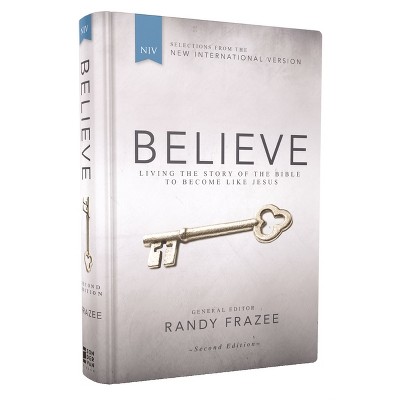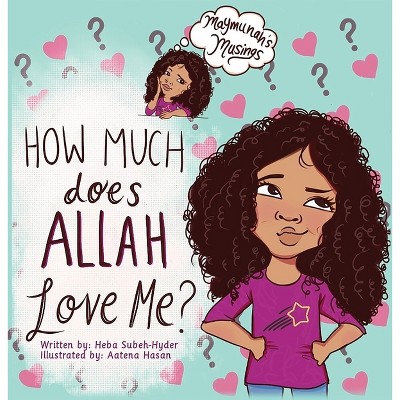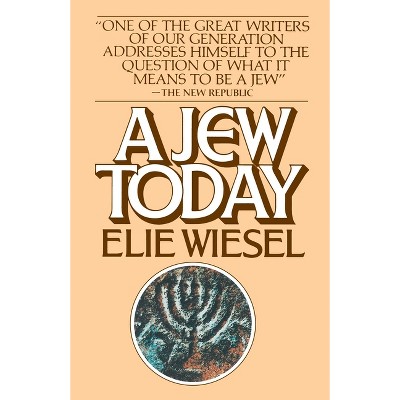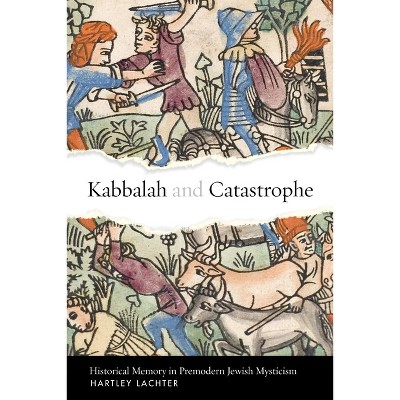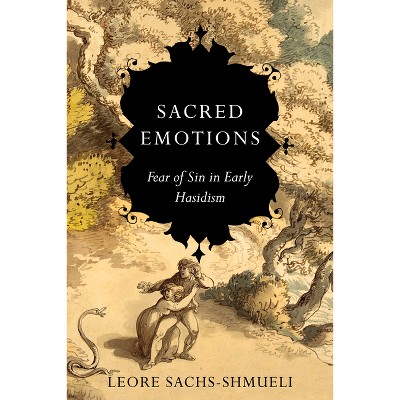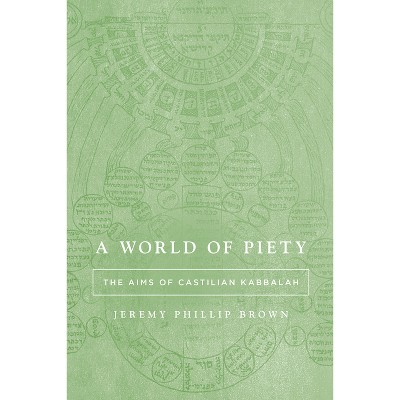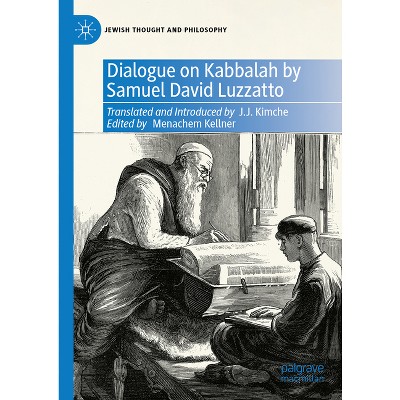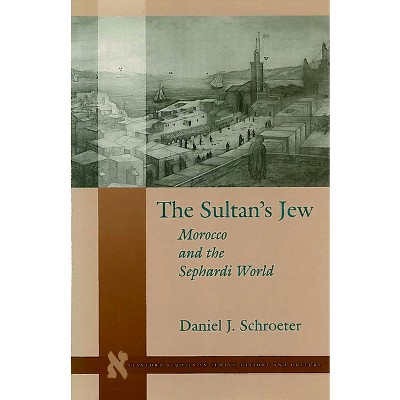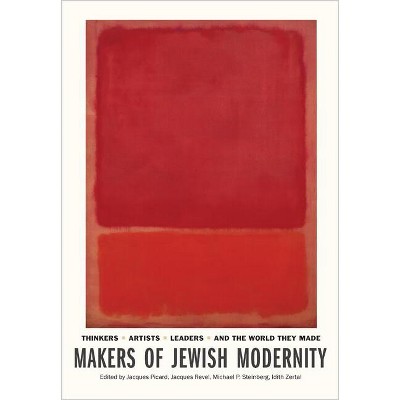Sponsored

Kabbalah and the Rupture of Modernity - (Stanford Studies in Jewish Mysticism) by Eli Rubin (Hardcover)
In Stock
Sponsored
About this item
Highlights
- Kabbalah and the Rupture of Modernity provides a comprehensive intellectual and institutional history of Chabad Hasidism through the Kabbalistic concept of ṣimṣum.
- About the Author: Eli Rubin is a contributing editor at Chabad.org.
- 446 Pages
- Religion + Beliefs, Judaism
- Series Name: Stanford Studies in Jewish Mysticism
Description
About the Book
"Kabbalah and the Rupture of Modernity provides a comprehensive intellectual and institutional history of Chabad Hasidism through the Kabbalistic concept of òsimòsum. The onset of modernity, Eli Rubin argues, was heralded by this startling idea: existence itself is predicated on a self-inflicted "rupture" in the infinite assertion of divinity. Centuries of theoretical disputations concerning òsimòsum ultimately morphed into religious and social schism. These debates confronted the meaning of being and forged the animating ethos of Chabad, the most dynamic movement in modern Judaism. Chabad's distinctive character and self-image, Rubin shows, emerged from its spirited defense of Hasidism's interpretation of òsimòsum as an act of love leading to rapturous reunion. This interpretation ignited a literal conflagration, complete with book burnings, denunciations, investigations and arrests. Chabad's subsequent preoccupation with òsimòsum was equally significant for questions of legitimacy, authority, and succession as for existential questions of being and meaning. Unfolding the story of Chabad from the early modern period to the twentieth century, this book provides fresh portraits of the successive leaders of the movement. Innovatively integrating history, philosophy, and literature, Rubin shows how Kabbalistic ideas are crucially entangled in the experience of modernity and in the response to its ruptures"--Book Synopsis
Kabbalah and the Rupture of Modernity provides a comprehensive intellectual and institutional history of Chabad Hasidism through the Kabbalistic concept of ṣimṣum. The onset of modernity, Eli Rubin argues, was heralded by this startling idea: existence itself is predicated on a self-inflicted "rupture" in the infinite assertion of divinity. Centuries of theoretical disputations concerning ṣimṣum ultimately morphed into religious and social schism. These debates confronted the meaning of being and forged the animating ethos of Chabad, the most dynamic movement in modern Judaism.
Chabad's distinctive character and self-image, Rubin shows, emerged from its spirited defense of Hasidism's interpretation of ṣimṣum as an act of love leading to rapturous reunion. This interpretation ignited a literal conflagration, complete with book burnings, denunciations, investigations, and arrests. Chabad's subsequent preoccupation with ṣimṣum was equally significant for questions of legitimacy, authority, and succession, as for existential questions of being and meaning.
Unfolding the story of Chabad from the early modern period to the twentieth century, this book provides fresh portraits of the successive leaders of the movement. Innovatively integrating history, philosophy, and literature, Rubin shows how Kabbalistic ideas are crucially entangled in the experience of modernity and in the response to its ruptures.
Review Quotes
"Kabbalah and the Rupture of Modernity is among the most insightful and original contributions to the study of Hasidism I have read. It deepens our understanding of Chabad's intellectual trajectory while offering a compelling model for integrating religious commitment with academic rigor. For scholars of Jewish mysticism, theology, and modern religion, or anyone interested in deepening his or her understanding and appreciation for the profound theology and history of Chabad, Rubin's work is essential reading." --Rabbi Todd Berman, Tradition
"Kabbalah and the Rupture of Modernity is, all considered, a stunning, important, and challenging work.... For initiated and uninitiated readers alike, Rubin's work provides an invaluable introduction to the evolving mystery oftzimtzumin Chabad thought, and to the thought of Chabad's five middle rebbes, who receive comparatively little attention outside the community. My sincere hope is that this book shall be the first of many, for both the author and his sacred genre." --Chesky Kopel, The Lehrhaus
"Kabbalah and the Rupture of Modernity presents a unique opportunity to engage with a case for Chabad thought that addresses itself to a modern audience while remaining faithful to the internal standards of the tradition." --Ben Frogel, Judaic Studies Review
"Eli Rubin's book is the first full-length statement of Chabad's philosophical program for an American audience. It makes the remarkable--and defensible--assertion that Jewish thought, and specifically the sixteenth-century Kabbalah of Isaac Luria, opens possibilities for modern science that are closed to the old determinism of pre-quantum science." --David P. Goldman, Law & Liberty
"Eli Rubin's book, Kabbalah and the Rupture of Modernity, paints a rich intellectual portrait of the Chabad-Lubavitch movement by intertwining a history of the movement with a theological history of the movement's core ideas." --Rabbi Reuven Chaim Klein, Jewish Link
"Rubin weaves Chabad metaphysics and significant events so they illuminate one another, taking us through the forks in the roads to better understand the path that forged forward ... It's an approach that presents a major leap forward in the study of Chabad history and philosophy." --Tzvi Freeman, Chabad
"Chabad's rich intellectual history and its place in the broad existential currents of modernity finally get their due with Rubin's stupendous book, which like its author, is a wonder of erudition, insight, and humility." --Yehudah Mirsky, Brandeis University
"Rubin's book offers an exciting new way of thinking about Jewish modernity, making this one of the most original and interesting books in Jewish Studies of our time." --Susannah Heschel, Dartmouth College
About the Author
Eli Rubin is a contributing editor at Chabad.org. He received his PhD from the Department of Hebrew and Jewish Studies, University College London.Shipping details
Return details
Trending Non-Fiction




